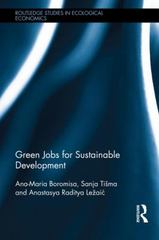Question
Question 1 (1 point) Suppose Adam is deciding what mode of transportation to take to get to work in the morning. If Adam decides to
Question 1 (1 point)
Suppose Adam is deciding what mode of transportation to take to get to work in the morning. If Adam decides to take a taxi, which of the following is an explicit cost of his decision?
Question 1 options:
| a | The loss of exercise he gets when he walks to work (assume exercise gives him positive benefit) |
| b | The $2.50 it costs to ride the subway. |
| c | The value he gets from commuting with his wife who also takes the subway |
| d | None of the above are explicit costs |
Question 2 (1 point)
Suppose a firm has annual revenue of $600,000 from producing cars. Alternatively, the firm could produce only the engines and earn revenue equal to $100,000. Assume that the firm's annual raw materials costs are equal to $400,000 and that the rent it pays for its production facilities is equal to $50,000. Then, the firm's economic profit is equal to:
Question 2 options:
| a | $200,000 |
| b | $150,000 |
| c | $100,000 |
| d | $50,000 |
Question 3 (1 point)
Tommy quit his job that paid $60,000 per year and started Tommy's Wicker Furniture Store. To set up the business Tommy used the $100,000 he had saved in a mutual fund, that was earning 5% each year ($5,000). Tommy used the $100,000 to purchase furniture for the showroom. Additionally, he rented a showroom for $15,000 for the year. In his first year, his revenue from selling furniture was $150,000.
What are the total implicit costs of Tommy's Wicker Furniture Store?
Question 3 options:
| a | $115,000 |
| b | $60,000 |
| c | $65,000 |
| d | $85,000 |
Question 4 (1 point)
Tommy quit his job that paid $60,000 per year and started Tommy's Wicker Furniture Store. To set up the business Tommy used the $100,000 he had saved in a mutual fund, that was earning 5% each year ($5,000). Tommy used the $100,000 to purchase furniture for the showroom. Additionally, he rented a showroom for $15,000 for the year. In his first year, his revenue from selling furniture was $150,000.
The economic profit of Tommy's Wicker Furniture Store is:
Question 4 options:
| a | $60,000 |
| b | $0 |
| c | -$20,000 |
| d | -$30,000 |
Question 5 (1 point)
Bill mows lawns for money. The following table shows Bill's total benefit and total cost of mowing lawns. Using marginal analysis, what is Bill's optimal number of lawns mowed?
| Quantity on Lawns Mowed | Total Cost | Total Benefit |
| 0 | $0 | $0 |
| 1 | $5 | $10 |
| 2 | $11 | $18 |
| 3 | $18 | $26 |
| 4 | $26 | $31 |
| 5 | $35 | $35 |
Question 5 options:
| a | 4 |
| b | 5 |
| c | 2 |
| d | 3 |
Question 6 (1 point)
Pauli's Pizza offers the following prices: one slice for $2, two slices for $3.50, three slices for $4.50, four slices for $5.00.
If a customer orders 3 slices, the marginal cost to the customer of the third slice is:
Question 6 options:
| a | $4.50 |
| b | $10 |
| c | $1 |
| d | $2 |
Question 7 (1 point)
One month ago Mark got a one year membership at a gym located near his current office, the membership fee for the gym is non-refundable. Today Mark is offered a new job. The new company has a gym in its office that is free for all its employees to use. In deciding whether or not to stay at his current job or take the new job, how should Mark consider the gym membership fee he has already paid?
Question 7 options:
| a | He should not consider it in his decision as it is a sunk cost |
| b | He should consider it in his decision as it is an explicit cost |
| c | He should consider it in his decision as it is an implicit cost |
| d | He should not consider it in his decision as it is an implicit cost |
Step by Step Solution
There are 3 Steps involved in it
Step: 1

Get Instant Access to Expert-Tailored Solutions
See step-by-step solutions with expert insights and AI powered tools for academic success
Step: 2

Step: 3

Ace Your Homework with AI
Get the answers you need in no time with our AI-driven, step-by-step assistance
Get Started


